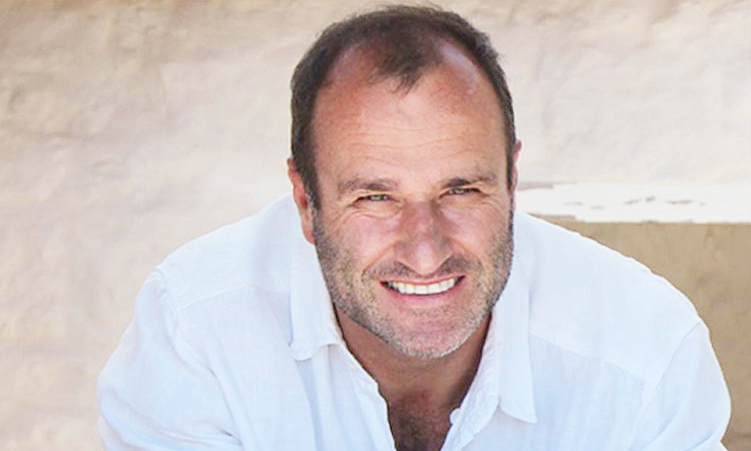Lawyer Marén de Klerk, who is wanted in Namibia after he became entangled in the Fishrot fishing quotas fraud and corruption case, is now suing the prosecutor general in an attempt to have a property preservation order over about N$6,5 million in two Namibian bank accounts set aside.
In a case filed at the Windhoek High Court near the end of March, De Klerk is asking the court to set aside a Prevention of Organised Crime Act property preservation order over a bank account in his name and another account in the name of his former law firm, De Klerk, Horn and Coetzee Incorporated (DHC).
De Klerk is also asking the court to allow him to give a notice stating that he is opposing the making of an order for the forfeiture of the funds in the two accounts to the state.
The account in De Klerk’s name holds about N$1,8 million, while there is about N$4,7 million in the DHC account.
Prosecutor general Martha Imalwa obtained a provisional property preservation order over the two accounts in the High Court near the end of October last year. The provisional order was confirmed by a judge of the court and made a final preservation order on 2 December last year.
In terms of the order, the money in the two accounts may not be transferred or used by anyone until the prosecutor general has applied to have the funds – alleged to be the proceeds of crimes – forfeited to the state.
De Klerk says in an affidavit filed at the court that he is denying the money in a Nedbank Namibia account in his name is the proceeds of unlawful activities. The funds in his account, he says, are legal fees paid to him “by agreement with the then attorney general” – a reference to Fishrot accused Sacky Shanghala, whose name De Klerk does not state, though.
De Klerk also says in his statement that “the then attorney general” of Namibia instructed him in May 2017 to manage “the Swapo election campaign”.
He adds that on the basis of instructions received from the attorney general – a post that Shanghala held at that time – and “his agent”, James Hatuikulipi, he received funds from various companies and paid out money to individuals and entities as instructed by Shanghala and Hatuikulipi.
It was only after the Fishrot scandal broke in November 2019 with media reports about alleged corruption around the use of Namibian fishing quotas “that I realised that the funds may have emanated from unlawful activities”, De Klerk states.
In charges that the state is levelling against 10 men awaiting trial in the High Court in connection with the Fishrot scandal, it is alleged that N$81,8 million in fishing quota usage fees which were supposed to be paid to the state-owned National Fishing Corporation of Namibia (Fishcor) was channelled through bank accounts of De Klerk’s law firm and a company of which he was the sole director and shareholder.
The money channelled through accounts of DHC and De Klerk’s company Celax Investments Number One was allegedly diverted to six of the men charged in the case – Hatuikulipi, who is a former Fishcor board chairperson, Shanghala, ex-minister of fisheries and marine resources Bernhard Esau, Esau’s son-in-law Tamson Hatuikulipi, former Fishcor chief executive Mike Nghipunya, and Pius Mwatelulo – or to entities of their choice.
Imalwa has informed the court that a total amount of about N$6,2 million that originated from quota usage fees was paid to Swapo and affiliates from accounts of DHC and Celax Investments.
De Klerk left Namibia in January 2020, after he had been questioned by Anti-Corruption Commission (ACC) investigators.
A Windhoek magistrate issued a warrant for De Klerk’s arrest on 29 April 2021, and in May 2021 justice minister Yvonne Dausab requested her South African counterpart to have De Klerk extradited from South Africa to Namibia to face charges in connection with the Fishrot case.
De Klerk has not been arrested in South Africa following Namibia’s extradition request.
A High Court judge declared in August 2020 that De Klerk is a fugitive from justice in Namibia. At the start of March this year, the Supreme Court dismissed an appeal by De Klerk against that judgement of the High Court.
In his affidavit, De Klerk says repeatedly that he cannot disclose where he is currently, and states that this is because he fears his personal safety is under threat. His fears for his safety are also the reason why he has not returned to Namibia, he says.
Because the court’s provisional property preservation order was not served on him, he could not comply with the Prevention of Organised Crime Act’s stipulation of time limits within which he was supposed to give notice of his intention to have the money in his Nedbank account excluded from the preservation order, he says in his affidavit.
Stay informed with The Namibian – your source for credible journalism. Get in-depth reporting and opinions for
only N$85 a month. Invest in journalism, invest in democracy –
Subscribe Now!










